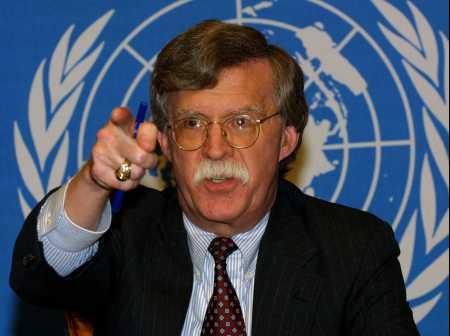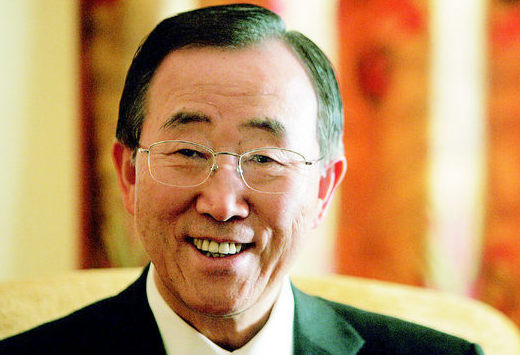By Otto Spijkers

Bolton likes Ban Ki-Moon. At least he likes him better than the previous Secretary-General of the United Nations, Mr. Kofi Annan. Of the latter Bolton says: "If he had spent less time moralizing and more time doing his day job, the United Nations may have been spared the oil-for-food scandal, procurement fraud and widespread sexual exploitation and abuse by its peacekeepers." What to make of such comments?
Bolton praises Ban Ki-Moon for not moralizing so much. For example, he praises the South-Korean for saying, in response to the hanging of Saddam Hussein, that the decision to invoke the death penalty is a matter for each state to decide for itself. Ban Ki-Moon later changed his mind and adopted the official UN standpoint, or as Bolton puts it: the "UN theology". This is regrettable, says Bolton:
The United Nations as an institution cannot have a legitimate position on a domestic issue such as the death penalty when there is such fundamental disagreement among its sovereign members – and especially where democratically legitimate governments have different views. To say that the secretary general must mouth the position adopted by a majority of countries in some U.N. body, whether legitimately or not, is a prescription for endless trouble.
Bolton’s advice to the United Nations is: "let Ban be Ban", and to the Secretary-General himself: "Don’t Ban Your Instincts, Ban Ki-moon". It is interesting to see whether Ban Ki-Moon will take Bolton’s advice. Kofi Annan was the driving force behind many declarations of "UN theology", such as the Millennium Declaration (A/RES/55/1). Eventually these declarations will be followed by action (implementing the Millennium Development Goals).
 Bolton now works at the American Enterprise Institute for Public Policy Research. The speech that John Bolton will always be remembered by, I think, is his "there is no United Nations" speech (already referred to here), delivered thirteen years ago at the Global Structures Convocation in New York.
Bolton now works at the American Enterprise Institute for Public Policy Research. The speech that John Bolton will always be remembered by, I think, is his "there is no United Nations" speech (already referred to here), delivered thirteen years ago at the Global Structures Convocation in New York.

It’s much less likely that Ban’s original statement “Each country should decide for itself on the issue of the death penalty” was instinctual or a show of his true “anti-UN-theological” position, as Bolton believes,
than that Ban was simply adapting to his new role. In the past, as South Korean foreign minister–a country with the death penalty–Ban has probably had to defend it and his country’s position in international fora, and under the new, bright, international lights just misspoke. Anyway, nice post, otto